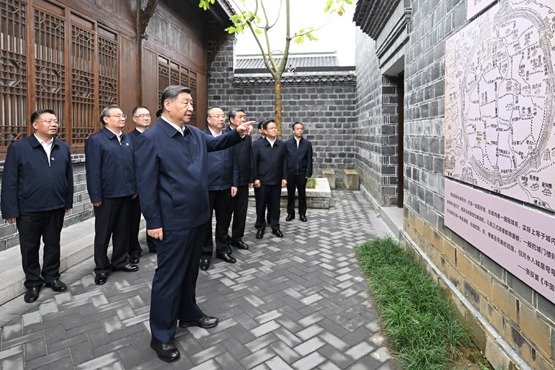Job market remains stable despite fluctuation


China's overall job landscape remained stable despite a seasonal fluctuation in the employment rate during the third quarter, thanks to the nation's stronger economic growth and employers' unchanged needs for new recruits.
Latest figures from the National Bureau of Statistics show that the surveyed unemployment rate averaged 5.1 percent in first nine months of the year, slightly dropping by 0.2 percentage points year-on-year.
Specifically, the number was 5.2 percent in first quarter, 5 percent in the second quarter and 5.2 percent during the third quarter.
"The small rise in third quarter was because of sudden flux of new college graduates in July and August, which is a seasonal fluctuation overlapping with the graduation season," said Sheng Laiyun, deputy head of the NBS, at a news conference in Beijing on Friday.
He added that though the large number of new graduates — estimated 11.79 million this year, posing greater pressure to the current job market, the employment market so far is in stable condition, thanks to the growing economy and its unchanged demands for labor forces.
He analyzed that several employment promotion policies have played an important role in stabilizing the job market, and the growth of GDP makes employers continue hiring eligible candidates.
"The GDP saw a rise of 4.6 percent in third quarter. Though marking a slight fall from 4.9 percent of the same period of last year, the GDP did increase by around 1.3 trillion yuan ($183 billion) in third quarter year-on-year," he said, adding that the larger proportion of modern services in GDP this year — the industry recognized as labor-intensive one — has also helped stabilize the employment.
According to Sheng, the number of working-age population — from 16 years old to 59 — dropped in recent years, which is also a key element of affecting the current labor supply and demand relation and maintaining the job market's stability providing that the employers' demands for new recruits didn't fall.
"From 2013 to 2023, the population of working-age labor force reduced by 5 to 6 million per year on average. Last year, the number was cut by 10 million," he said.
However, Sheng stressed that the structural problem of the job market remains with the youths facing difficulties in landing jobs and the manufacturing industry struggling to lure new recruits.
All these problems require the authorities to promote employment to grow fully and with higher quality, also channeling more efforts in creating new job opportunities in the process of developing economy.




































